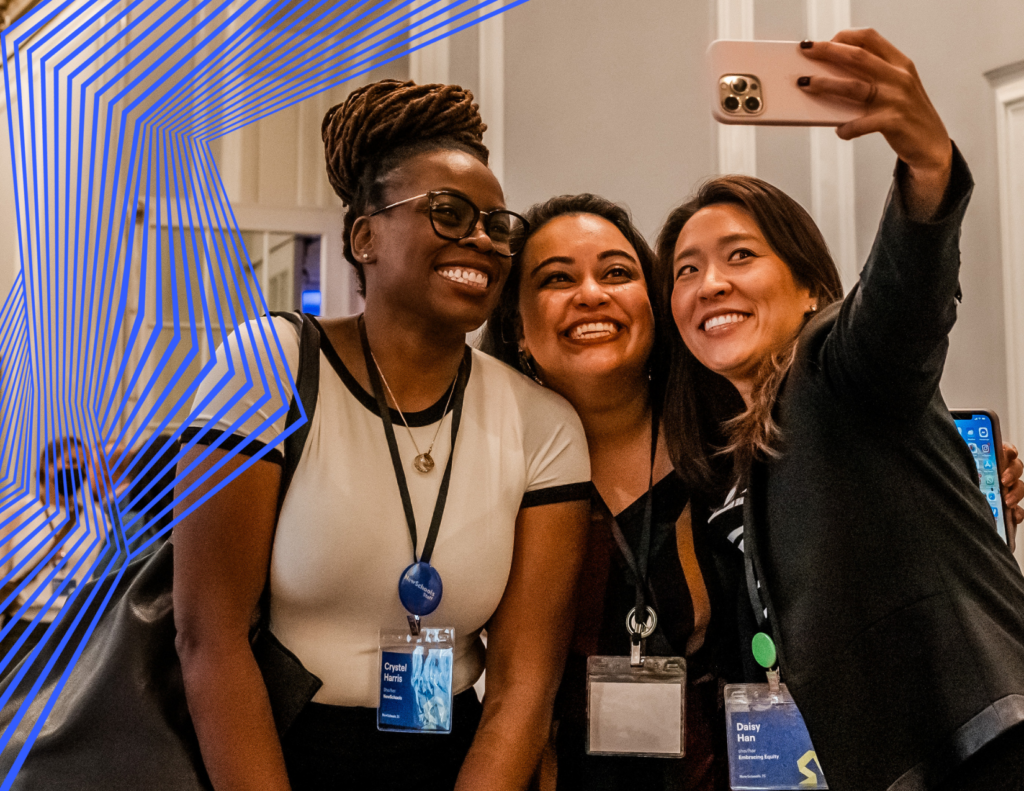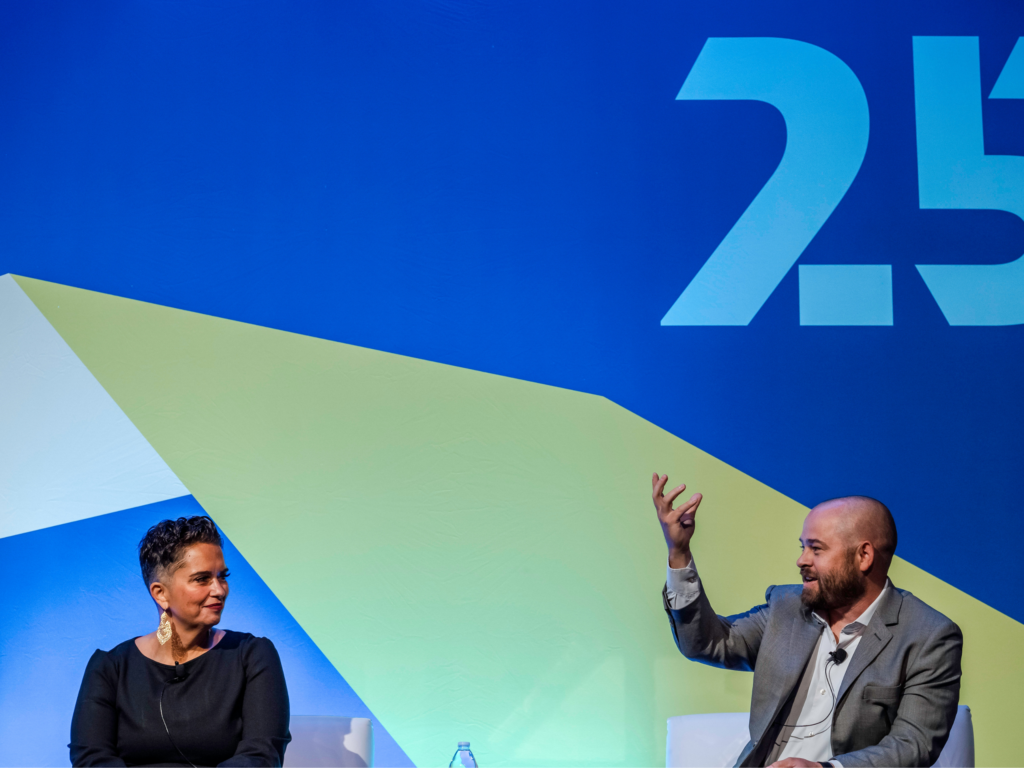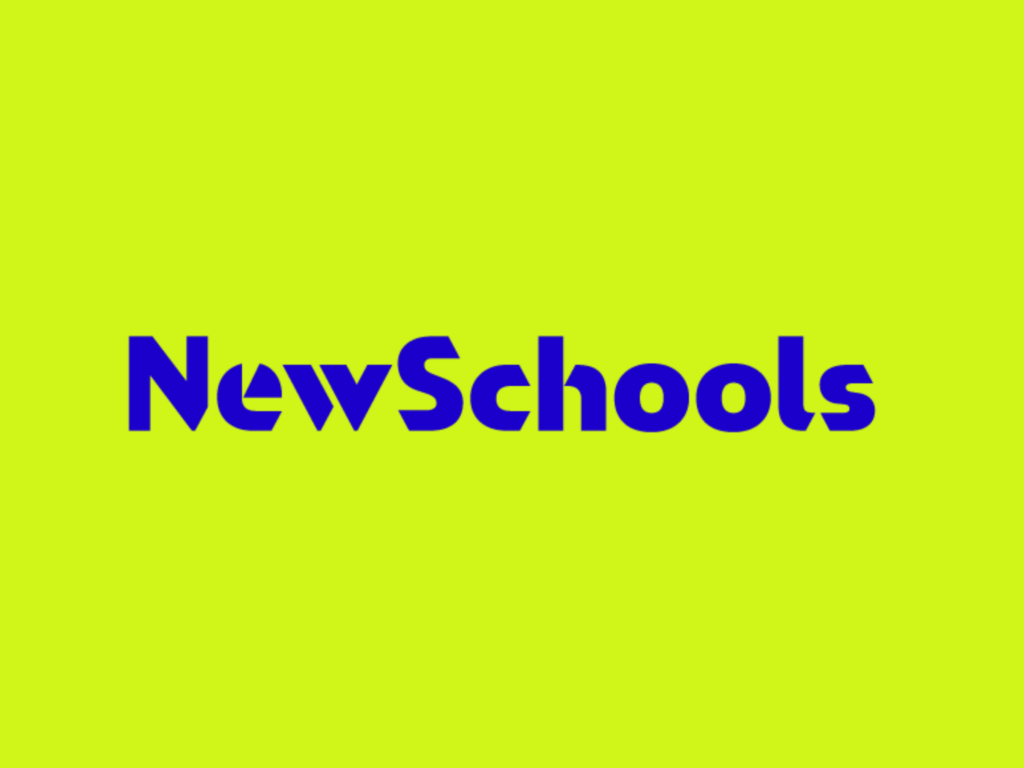Guest post by Xiomara Padamsee, Founder & CEO of Promise54
This is the first in a series of insights and reflections from panelists from NewSchools Summit 2018. The series can also be found on Medium.
 Leaders often shy away from public discussion of our work to deepen diversity, inclusion, and equity in our organizations for fear of saying the wrong thing, being or making others uncomfortable, taking credit for the work of the collective, conveying that we have “the answers”, and so many other reasons. At the recent NewSchools Summit, my colleague Jovian Zayne and I organized a session where four courageous leaders did the opposite – they stepped up to share a bit about their individual and organizational journeys, imperfections and all, with the hopes that their perspectives could help to inform and fuel others’ continued progress. It was a truly inspiring set of TED talk style testimonials, followed by a panel full of honesty and vulnerability. I encourage you to watch the full session if you have time. But if not, here are a few highlights:
Leaders often shy away from public discussion of our work to deepen diversity, inclusion, and equity in our organizations for fear of saying the wrong thing, being or making others uncomfortable, taking credit for the work of the collective, conveying that we have “the answers”, and so many other reasons. At the recent NewSchools Summit, my colleague Jovian Zayne and I organized a session where four courageous leaders did the opposite – they stepped up to share a bit about their individual and organizational journeys, imperfections and all, with the hopes that their perspectives could help to inform and fuel others’ continued progress. It was a truly inspiring set of TED talk style testimonials, followed by a panel full of honesty and vulnerability. I encourage you to watch the full session if you have time. But if not, here are a few highlights:
Demographics Are Not Enough
The underlying theme of the session, and a message driven home in the 2017 Unrealized Impact report, is that having a team that looks diverse doesn’t mean we’ve created a space where everyone experiences a sense of deep belonging and connectedness so that they can do their best work for kids, families, and communities. Likewise, solving for representative demographics does not automatically translate to equitable internal systems, structures, and behaviors. In fact, based on the data, we are not seeing equity in organizations until both diversity and inclusion are in place. And this was true for each of the presenters, too, regardless of where they were at in their journeys.
Defining Moments
Many of the panelists talked about a “turning point” or “defining moment” that brought this work to the forefront for their organization. For Dr. Tonya Horton, Vice President with TNTP, it was an outside event: when Hurricane Maria hit Puerto Rico, TNTP’s response plan included a meeting between the organization’s CEO and the Latinx Affinity Group. After soliciting input, the organization’s CEO committed to returning to the affinity group before making a final decision. However, this final step was missed. In the interest of efficiency, leadership made their decision without consulting the group again. After a facilitated workshop on white dominant culture at a TNTP leadership retreat, a member of the affinity group spoke up, and it became clear this instance was symptomatic of larger, ongoing issues. Responding in real time, the leadership team decided to scrap that day’s agenda to make room for dialogue. Following that retreat, and a public acknowledgement and apology from the CEO, the TNTP staff team has continued to lean into the uncomfortable conversations that were previously avoided, and have started talking about and working to actively decenter dominance in the TNTP culture.
Share the Burden of Difficult Conversations
Hilary Darilek, CEO of E.L. Haynes Public Charter School, shared an instance where offensive comments were made to her staff by an outside visitor. While she noticed and felt her own discomfort, she didn’t speak up in the moment. Instead, two of the school’s staff members of color did speak up. Later that day, Hilary sent an email to the whole community but she realized it was “too little, too late.” She shared how important it is to push ourselves as leaders to speak up in critical conversations when our community needs us, even – especially – when it’s hard. Hilary also recognized her unique role as a white leader in shouldering the burden of disruption in these critical moments so that her colleagues of color (or from other historically marginalized identities) could bear a little less of that burden. Tonya also emphasized the need for raw, vulnerable conversations, and sitting in the discomfort. Going forward, she said, TNTP is going through a personal discovery experience and “staff appreciate that we’re finally listening.”
Moving From Talk to Action
Many of the panelists emphasized the importance of taking action. Athena Palmer, Executive Director of Teach for America – Memphis, said she hasn’t found talking to be helpful. She has found discussions around DEI to consistently center whiteness at the cost of non-white people in the room. Athena has been working hard to move past talking to concrete changes in actions and behaviors. For her, this means constantly assessing her organization against their DEI goals, changing the definition of who was able to work on her staff by reversing priorities and focusing on cultural competency above technical skills, holding people accountable to DEI measures at all levels, choosing Black-owned businesses as vendors first, clearly showing values in social media, and ensuring the decision-making body is diverse.
Pamela Inbasekaran, COO of Relay Graduate School, told us they took action following extensive internal conversations with each staff member and external research with other organizations and publications. Relay used what they learned to create a Diversity Steering Committee, adopt best practices in anti-bias hiring, encourage more informal mentorship and development of strong leaders of color, and become vigilant about collecting staff racial and ethnic data then using it to as a foundation for decision-making and investments.
From Optional to Necessary
In the panel we heard how Hilary focuses on diversity, equity and inclusion every single day because “interrupting these inequities is my work.” She shared the steps she takes to continue making progress: create spaces for conversations for people to learn together and have conversations about equity, truly listen to diverse voices in your community across roles, tenure and expertise, and be willing to make financial investments and tradeoffs in service of equity.
This theme has guided Pamela’s work as well. As Relay works to set its organization’s strategic plan for the next three years, Pamela told us that diversity is no longer a separate strand of their work, but a critical piece that’s woven in to their planning. As a result of what they’ve learned in the past three years, Pamela said, “diversity, equity and inclusion are at the foundation of our ambitions to strengthen and scale our institutions.”
None of us consider ourselves experts. We are learning as we go but we put this session together because we find inspiration, power, strength, and restoration in sharing our steps and missteps while learning from others. In that spirit, I hope you’ll be willing to share yours, too – please leave a comment!


